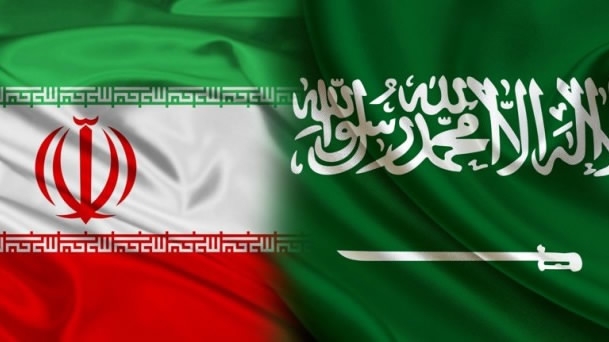Diplomatic efforts to patch up frayed relations between arch-rivals Saudi Arabia and Iran have reportedly been given a shot in the arm, after an Iraqi official said Riyadh asked Baghdad to mediate with Tehran to “reduce tensions”.
While some have said Sunday's announcement is a cause for relief, others warned that optimism about a possible let-up must be cautious.
What was said on Sunday?
Iraq’s Interior Minister Qasim al-Araji said Riyadh asked Iraqi Prime Minister Haider al-Abadi to help mend the kingdom’s ties with Tehran.
Al-Araji arrived in Tehran on Saturday to discuss “several issues” with Iranian officials, following a visit to Saudi Arabia last month.
"During our visit to Saudi Arabia, they also asked us to do so, and we said that to (the) Iranian side. The Iranian side looked at this demand positively," Iraqi broadcaster Alghadeer quoted al-Araji as saying on Sunday.
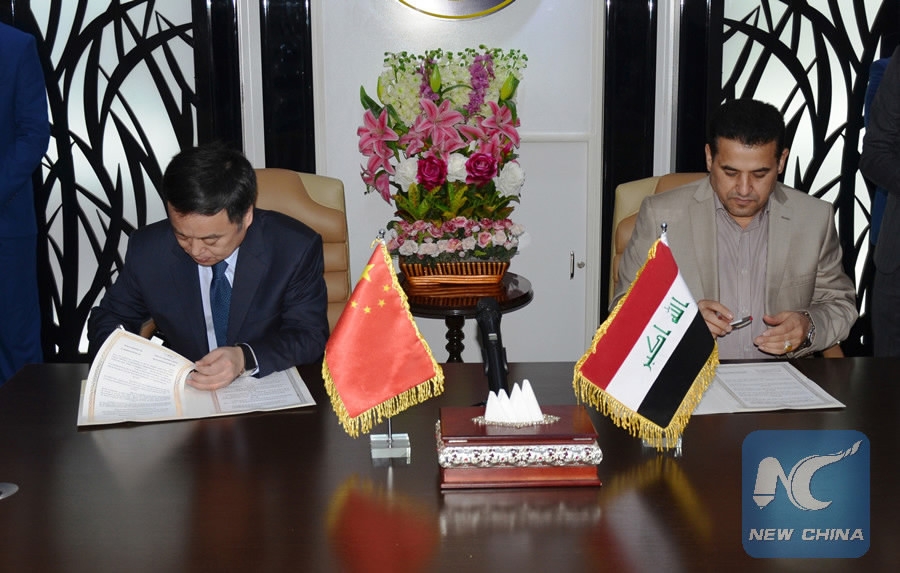
Iraqi Interior Minister Qasim al-Araji (R) and Chinese ambassador Chen Weiqing sign a memorandum of understanding in Baghdad on July 26, 2017. /Xinhua Photo
Iraqi Interior Minister Qasim al-Araji (R) and Chinese ambassador Chen Weiqing sign a memorandum of understanding in Baghdad on July 26, 2017. /Xinhua Photo
Meanwhile, Iran’s Fares News Agency reported the Iraqi official saying Saudi Crown Prince Mohammed bin Salman “officially” asked Iraq to lend a hand as a mediator in the ongoing spat, noting that “King Salman had also earlier raised such a demand”.
What’s the dispute about?
A long-running sectarian feud and rivalry over regional clout have led the Sunni-predominant Saudi Arabia and Shia-majority Iran to engage in proxy wars in Syria and Yemen.
The ongoing rift can be traced back to 2015, although tensions exploded into a full-blown diplomatic crisis in early 2016.
A stampede during the annual Hajj pilgrimage in Mecca in September 2015 caused the death of over 2,000 people – although Riyadh places the figure lower.
Iranians accounted for the largest number of victims, with Tehran saying as many as 464 of its nationals suffocated or were crushed to death, and accusing the Saudi government of being incapable of managing the religious event.
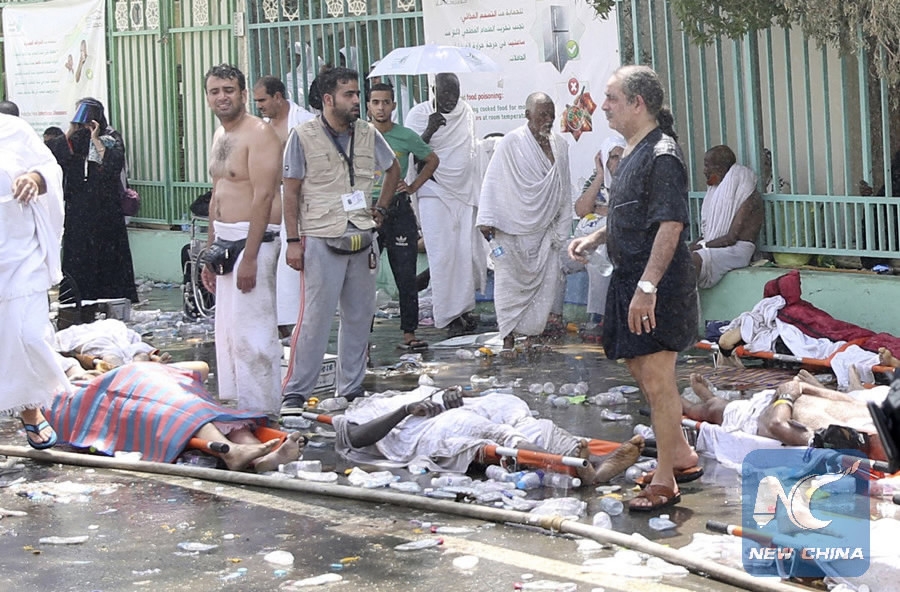
Tensions started after the Hajj stampede, which killed over 460 Iranian pilgrims. /Xinhua Photo
Tensions started after the Hajj stampede, which killed over 460 Iranian pilgrims. /Xinhua Photo
The sour relations took a turn for the worse in January 2016 when Riyadh executed Shiite cleric, Nimr al-Nimr, causing anti-Riyadh protesters to storm the diplomatic missions of Saudi Arabia in the Iranian capital and the city of Mashhad.
Following the attack, the Gulf nation broke off diplomatic ties with Iran.
Why is Iraq the middleman?
Baghdad offered to defuse the tensions between Tehran and Riyadh in 2016, however the initiative soon fizzled.
The Iraqi government, which at the time was in the midst of an intense battle to regain vast territories from ISIL, was worried that raging sectarian rhetoric between the regional rivals would translate into more instability at home.
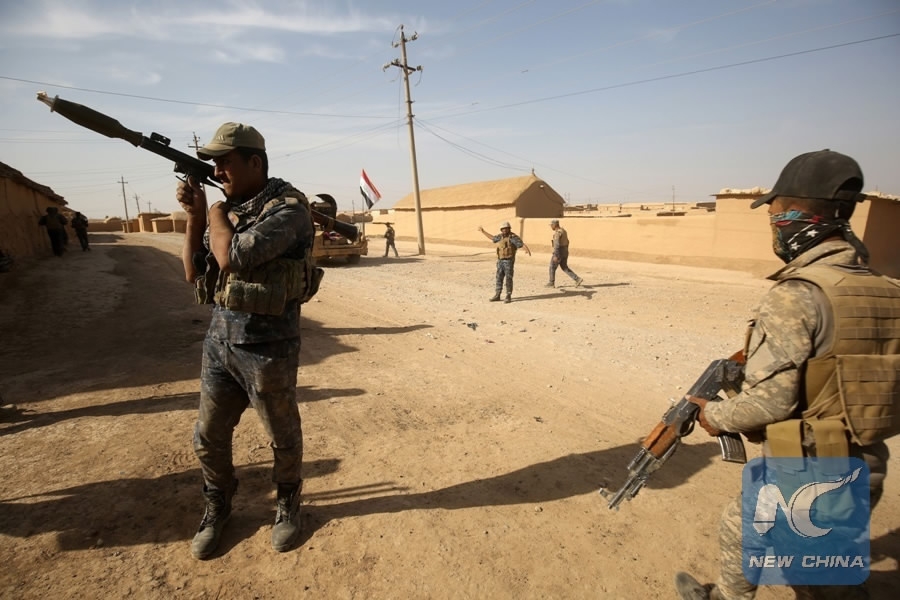
Iraqi Prime Minister declared victory in liberating Mosul from ISIL rule in July, after a nine-month tough battle. /Xinhua Photo
Iraqi Prime Minister declared victory in liberating Mosul from ISIL rule in July, after a nine-month tough battle. /Xinhua Photo
However, Iraq being chosen to help bury the hatchet now seems natural, according to Iraqi officials. The army has succeeded in driving ISIL militants out of their urban strongholds and the government is now pushing to "strengthen economic and investment relations with Saudi Arabia,"
"After the victories that Iraq has achieved, (Saudi Arabia) began looking to Iraq, at its true size and leading role," Alghadeer cited al-Araji as saying.
Will things be alright?
Sunday’s announcement follows positive developments between Saudi Arabia and Tehran.
On the sidelines of the Organization of Islamic Cooperation (OIC) on August 1, Saudi Foreign Minister Adel al-Jubeir shook hands with his Iranian counterpart Mohammad Javad Zarif.
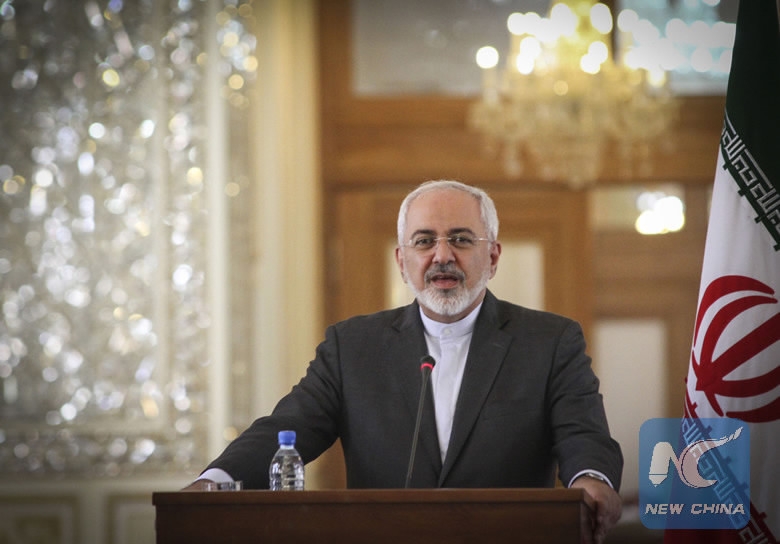
Irania Foreign Minister Mohammad Javad Zarif said a handshake with his Saudi counterpart is "diplomatic norm". /Xinhua Photo
Irania Foreign Minister Mohammad Javad Zarif said a handshake with his Saudi counterpart is "diplomatic norm". /Xinhua Photo
The Iranian official downplayed the handshake, saying it was “diplomatic norm” and analysts should not read much into it.
Still, many considered it as a bright spot that could herald something more promising.
The rare visit of prominent Shiite cleric Muqtada al-Sadr to Saudi Arabia late last month, the first in 11 years, stoked hopes of a possible resolution down the road.
Al-Sadr, a critic of the Saudi royal family, said, “Crown Prince Mohammed bin Salman signaled that peace will reign in Yemen, and Syria and the whole region”.
"Saudi Arabia has proven its strength, and now it wants to prove its ability to bring peace,” he added.
Prince bin Salman launched a military operation in Yemen in 2015 against Iran-backed Houthi militants. Talks of a cessation of hostilities in the southern neighbor of Saudi Arabia could be the result of some sort of rapprochement between Riyadh and Tehran – although previous ceasefire agreements have collapsed.
Promising signs to come?
The announcement of mediation, however, has raised a few eyebrows over its oddity.
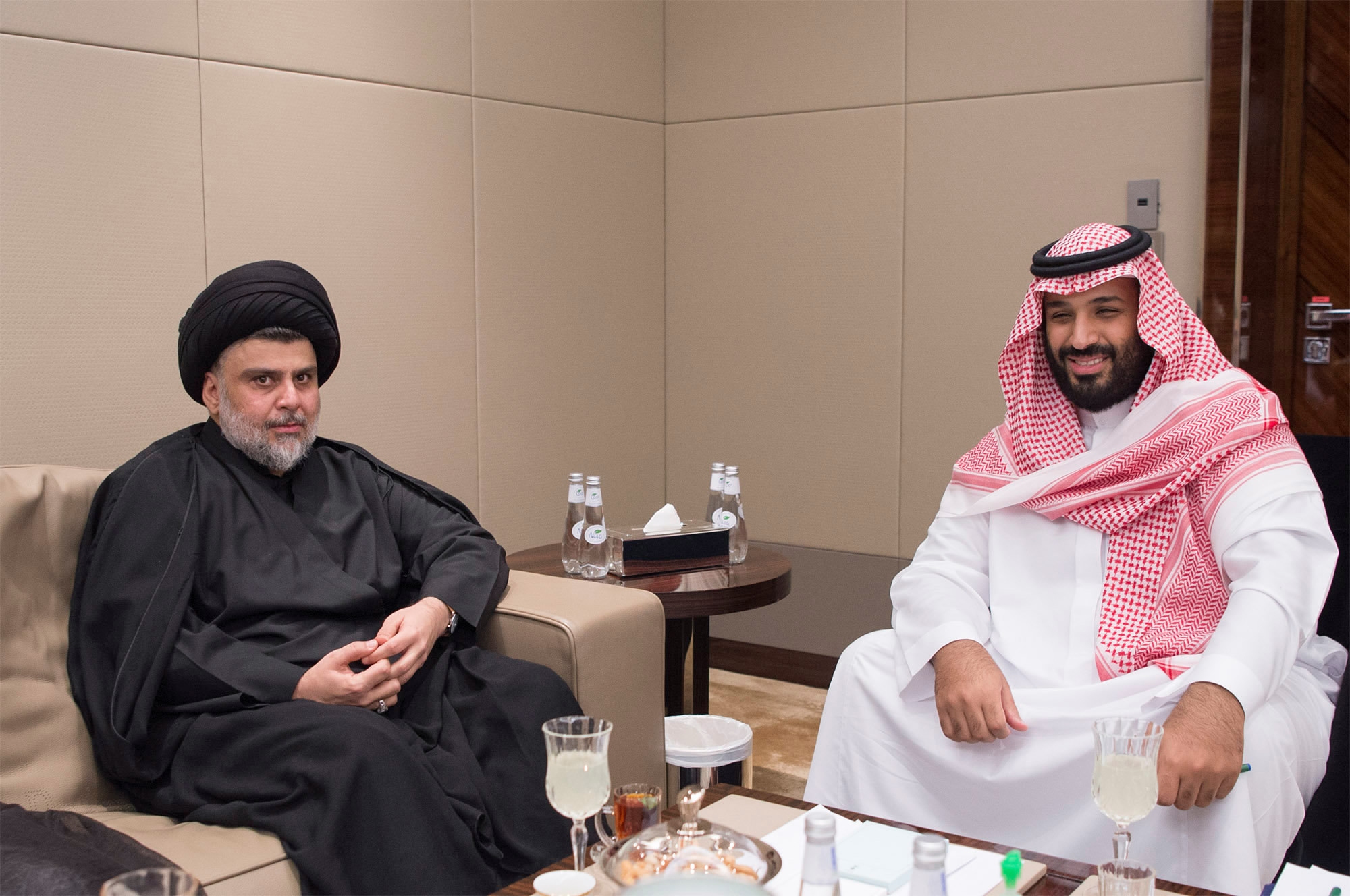
Saudi Crown Prince Mohammed bin Salman (R) meets with Iraqi Shiite leader Muqtada
al-Sadr in Jeddah, Saudi Arabia on July 30, 2017. /Reuters Photo
Saudi Crown Prince Mohammed bin Salman (R) meets with Iraqi Shiite leader Muqtada
al-Sadr in Jeddah, Saudi Arabia on July 30, 2017. /Reuters Photo
Prince bin Salman, whom al-Araji said was behind the request, is brutally vocal about his opposition to Iran, saying in May there is no room for dialogue with the country because of its intentions “to control the Islamic world”.
A U-turn from his previous views, while not unlikely, has not been preceded by any pointers, especially after the blockade Riyadh has imposed against Qatar since June, which had been seen, among other reasons, as a punishment over Doha’s close relations with Tehran.
Among the 13 conditions the Saudi-led bloc presented to lift economic sanctions on Qatar and resume diplomatic ties was Doha cutting back its ties with Iran.
Saudi Arabia is yet to officially confirm or deny the news of a mediation request.

